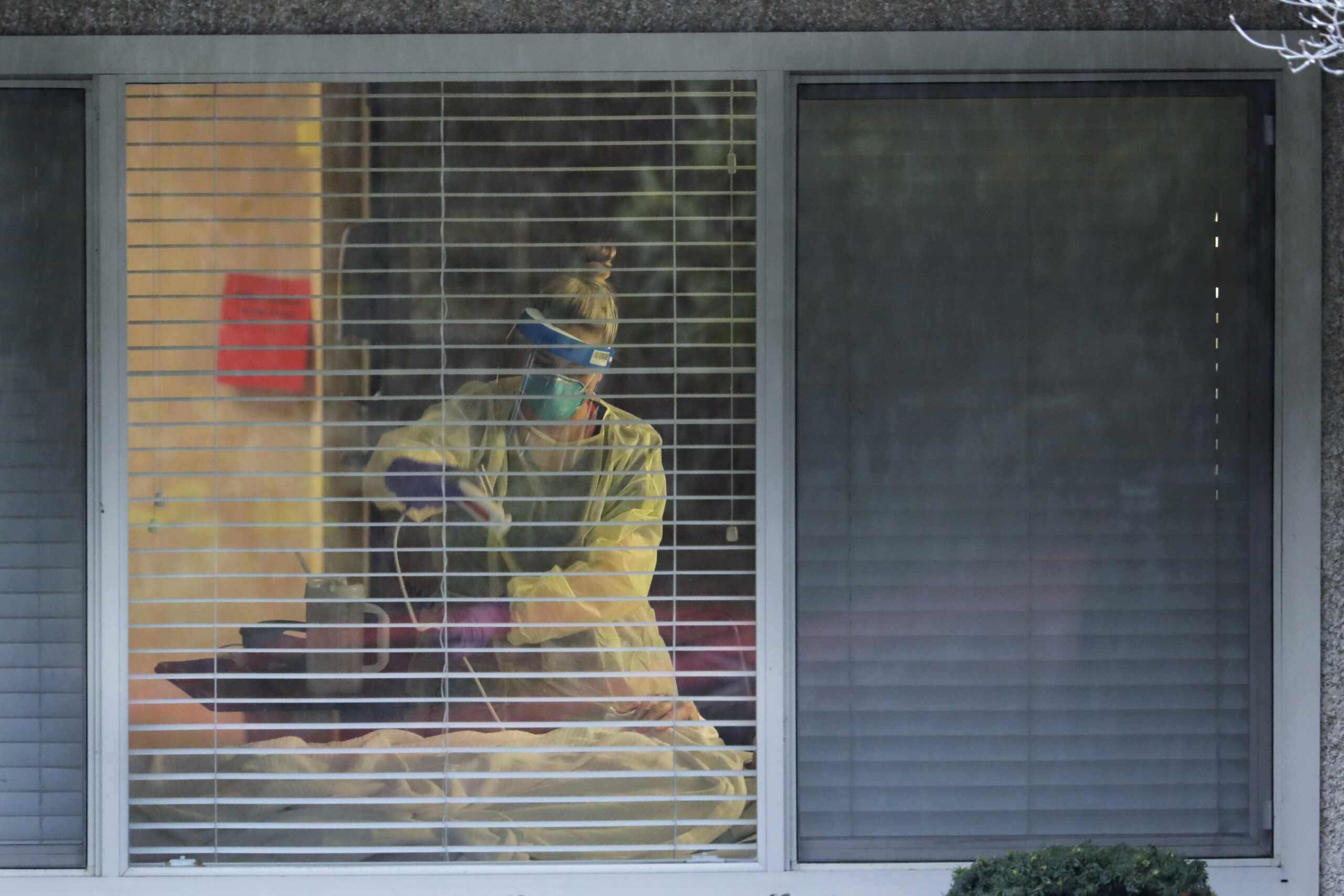Cases of COVID-19 are on the rise in Wisconsin nursing homes, where 88 percent of residents are vaccinated, but many workers are not. Deaths among nursing home residents are also increasing — doubling in one month, from mid-August to mid-September, according to AARP.
New COVID-19 infections and deaths in residents of long term care facilities are nowhere near the level they were at the peak of the pandemic; however, they are starting to creep upward due to a combination of breakthrough cases and not enough vaccinated health care staff.
There were 192 new COVID-19 infections over the course of four weeks ending Sept. 19, according to the group’s dashboard. In that same timeframe, 20 people in Wisconsin nursing home residents died from the disease. The data is compiled by the AARP Public Policy Institute in collaboration with the Scripps Gerontology Center at Miami University in Ohio.
News with a little more humanity
WPR’s “Wisconsin Today” newsletter keeps you connected to the state you love without feeling overwhelmed. No paywall. No agenda. No corporate filter.
Across the U.S., the AARP dashboard shows a very uneven level of vaccination among nursing home workers. A federal rule is currently in the works that would require staff get shots at hospitals, nursing homes and other facilities funded by Medicaid and Medicare dollars.
John Sauer who directs LeadingAge Wisconsin, an organization that represents long term care facilities, wishes more people would believe in the effectiveness and safety of vaccines to protect themselves and those around them. But he expects some staff will quit because of the mandate, exacerbating a longstanding worker shortage at a crucial time.
“If unvaccinated staff are committed caregivers wearing their personal protective equipment, it’s probably better to have that staff available than to deny care and services to people who need it,” he said.
In Wisconsin, 65 percent of staff are fully vaccinated — lower than in Minnesota where 71 percent are vaccinated, but higher than Michigan, Ohio, and Indiana where less than 60 percent of staff fully vaccinated.
But there’s still a third of workers in Wisconsin nursing homes who are not vaccinated, going back and forth from work to their community, said Sam Wilson, state director of AARP Wisconsin.
“That carries a high risk of them transmitting the virus into facilities. That’s a huge concern for us,” Wilson said.
Nursing home residents and staff who got the Pfizer vaccine are getting COVID-19 booster shots, said Sauer. However, most got the Moderna vaccine under a federal program and a third shot hasn’t been approved by regulators yet.
No vaccine is 100 percent effective in any age group, and health officials say they expect to see some fully vaccinated people test positive for COVID-19. Those breakthrough cases typically report mild or no symptoms, according to the Wisconsin Department of Health Services.
Doctors around the country, like Ashish Jha from the Brown University School of Public Health, are concerned possible misinformation about breakthrough infections following the death of General Colin Powell, the first Black U.S. Secretary of State and Chairman of the Joint Chiefs of Staff.
The 84-year-old was fully vaccinated and died from COVID-19 complications, according to his family. Powell had previously been diagnosed with multiple myeloma, a blood cancer that can weaken the body’s ability to fight infections.
On Twitter, Dr. Jha noted a “breakthrough infection that most people tolerate can kill vulnerable folks.”
The latest age-adjusted data from Wisconsin health officials shows those who are not fully vaccinated are 19 times more likely to die from COVID-19 than those who have gotten a full series of shots to protect against the disease.
Wisconsin Public Radio, © Copyright 2025, Board of Regents of the University of Wisconsin System and Wisconsin Educational Communications Board.







